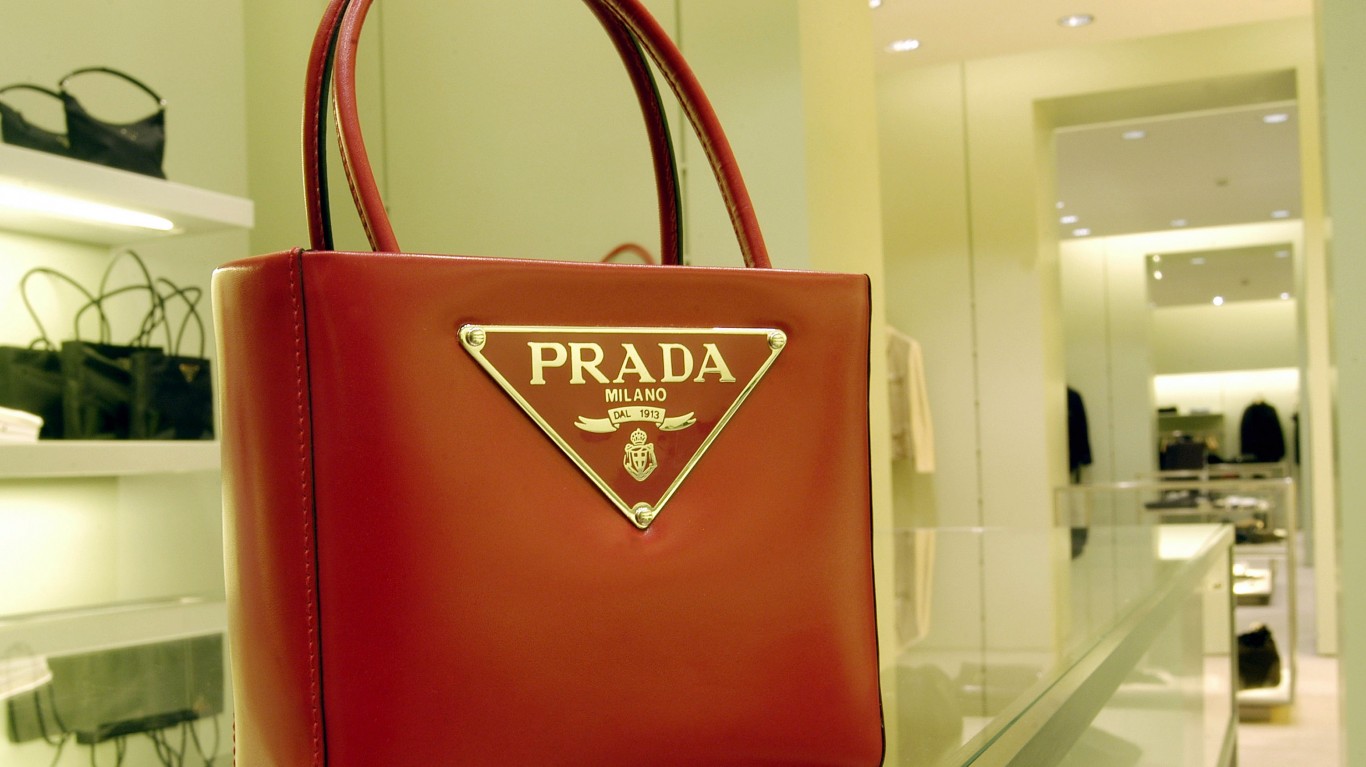Investing
How Luxury Brands Are Using Blockchain Tech, AI to Fight Counterfeits

Published:
Last Updated:

Luxury brands have long been plagued by the issue of counterfeit products flooding the market. From fake handbags and replica jewelry to brand knockoffs, the counterfeit industry has thrived, costing these brands billions of dollars in revenue.
However, in recent years, luxury brands have turned to cutting-edge technologies such as blockchain and artificial intelligence (AI) to fight back against counterfeits and ensure the authenticity of their products.
Prada Group, the parent company of Miu Miu, has invested in high-tech methods to track its luxury goods. For one, the company has tapped the Aura Blockchain Consortium to launch services that use blockchain technology to allow customers to verify the authenticity of their purchased items.
Aside from Prada Group, other luxury brands, including Loro Piana, Louis Vuitton, and Maison Margiela, have also adopted similar measures. By uploading certificates of authenticity onto the blockchain, these brands aim to offer customers confidence that their products are genuine.
The use of blockchain technology is especially significant in the fight against counterfeits. It is estimated that counterfeit and pirated products account for $464 billion of world trade, making up 2.5% of global trade. The emergence of blockchain technology offers a promising solution to this problem.
By creating an immutable and transparent record of product origin and supply chain, a blockchain allows customers to trace the history of their purchased items. This makes it impossible for counterfeiters to pass off fake goods as originals.
The Aura Blockchain Consortium, founded in 2021 by LVMH, Prada Group, and Richemont, ensures that the brands control the authenticity verification process. Once products are registered on the consortium’s platform, customers can confidently check their authenticity on a trusted and authorized site.
Aside from luxury brands, other companies are also using blockchain to battle against counterfeit products. For instance, Italian producers of Parmigiano-Reggiano cheese have installed edible microchips on their renowned 90-pound cheese wheels.
The silicon microchips, crafted by Chicago-based p-Chip, can be used to determine a product’s authenticity and origin in the supply chain. According to p-Chip, these micro transponders cannot be replicated or counterfeited, can survive between temperatures of -200C to 500C, are resistant to microwave irradiation, and are unaffected by solvents or reagents.
However, skeptics remain regarding the effectiveness and robustness of blockchain solutions. “I remain skeptical about the robustness or usefulness of blockchain solutions that attempt to bridge physical assets with the esoteric nature of blockchain networks,” said Colin Platt, who advises and consults companies on blockchain projects.
“What happens if I pull that NFC chip out of the bags, make 10,000 copies and put them in 10,000 fake bags? Who owns the real bag?”
Despite these challenges, luxury brands continue to explore the potential of blockchain technology and AI in the fight against counterfeits. Implementing blockchain systems across the luxury goods industry serves as a significant test of the technology’s utility and scalability outside of its original use case in cryptocurrencies.
Moreover, using these technologies presents opportunities for luxury brands to build stronger customer relationships. By enhancing trust and delivering added value through verifying product authenticity and offering digital certificates, brands can foster loyalty and differentiate themselves in a market flooded with counterfeits.
Luxury brands are not solely relying on blockchain technology, as they also explore AI-based verification systems. For instance, Patou, a fashion brand owned by LVMH, has developed an AI-based system called Authentique Verify, which assists in verifying product authenticity.
“A digital certificate of authenticity is a huge problem solver,” said Stefano Rosso, chairman of the French fashion house Maison Margiela and chief executive officer of BVX, both part of OTB Group. “In parallel, it helps us market the product and track its origins.”
Moreover, luxury brands can use emerging technologies to market their products more effectively and offer added value to customers. A digital certificate of authenticity solves the problem of lost or misplaced certificates and provides an easily accessible record of ownership for customers. Additionally, it opens up possibilities for customers to resell or pass on their luxury goods, further emphasizing their investment value.
Integrating blockchain technology and AI in luxury brands marks a pivotal moment in the battle against counterfeits. While challenges remain, cutting-edge technologies can help these brands protect their products and customers.
This article originally appeared on The Tokenist
Thank you for reading! Have some feedback for us?
Contact the 24/7 Wall St. editorial team.